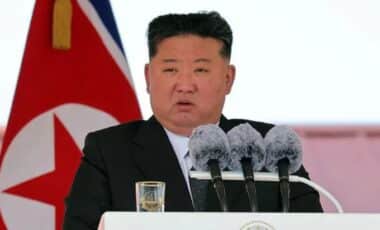Since November of 1860, when he was elected president of a nation that was teetering on the brink of fatal division, the Christmas season had betokened very little of peace on earth and good will toward men for Abraham Lincoln. On December 20, 1860, recognizing that the election of Lincoln meant that the differences between the North and South were not likely to be resolved by peaceful means, South Carolina seceded from the Union, with ten more Southern states destined to follow suit in 1861.
Long, grueling years of strife lay ahead for the nation, but for that last Christmas at home in Springfield, Illinois, the incoming president observed the holiday. Records show that Abraham Lincoln did his shopping on Christmas Eve day, buying four linen handkerchiefs, three silk men’s handkerchiefs, and four children’s handkerchiefs.
 Abraham Lincoln
Abraham Lincoln
By 1861, the Lincolns were in the White House and the nation was at war. Christmas during wartime is inherently grim, but for the North, beleaguered by a lack of victorious generals and demoralized by Confederate triumph, the holidays were lacking in joy. While the South could boast of its pantheon of stellar generals, the North was going through commanders as if they were discarded gift wrap. The North had seen setback after setback as the Confederate forces seemed to have the upper hand.
Lincoln’s presidency was beset by those who wished to simply end the war and let the South have its independence; matters were so dire that Lincoln doubted that he would be re-elected to a second term. But 1863 had begun to hint at a different outcome to the conflict; the battle at Gettysburg had brought the war into northern territory for the first time, but the South had been driven out of Pennsylvania and the three days of conflict had inflicted casualties upon the Confederate forces. General Ulysses S. Grant’s victory at Vicksburg had restored the control of the Mississippi River to the Union or, as Lincoln had written in a letter. “The father of waters again goes unvexed to the sea.”
 William Tecumseh Sherman
William Tecumseh Sherman
By September of the following year, General William T. Sherman had unleashed the terrible swift sword of Union military might upon the South, marching through Georgia like divine retribution, determined to make the South pay for the war that it had initiated by seceding from the Union. The fact that the South felt the Constitution gave it the right to secede was irrelevant. Atlanta was to be evacuated and burned, and when the city’s mayor and town council protested, Sherman explained his reasoning. “You cannot qualify war in harsher terms than I will. War is cruelty, and you cannot refine it; and those who brought war into our country deserve all the curses and maledictions a people can pour out. I know I had no hand in making this war, and I know I will make more sacrifices to-day than any of you to secure peace . . . Once admit the Union, once more acknowledge the authority of the national Government, and, instead of devoting your houses and streets and roads to the dread uses of war, I and this army become at once your protectors and supporters, shielding you from danger, let it come from what quarter it may.”
Atlanta did not find his words reassuring. Sherman had said, “War is hell,” and he was intent on proving it, inflicting $100 million worth of damage, of which, Sherman admitted, approximately one-fifth was to the army’s advantage and the remaining four-fifths simply wanton destruction to completely shatter the will of the South to continue the fight.Sherman’s victory was a factor in the presidential election of 1864. Lincoln ran against the popular George McClellan; while commanding Union forces, “Little Mac” had nothing but contempt for his commander-in–chief and, after being relieved of command by Lincoln for his reluctance to engage in battle, thought to have his vengeance by defeating Lincoln for the office of president. But with victory looming, the nation had no wish to change leaders and Lincoln won the election.
With the change in the fortunes of war and the election won, this Christmas would be one that Lincoln could look forward to. Christmas of 1864 would be the last one of the Civil War, but would also, tragically, be Lincolns’ last. Mary Lincoln had gone to Philadelphia to shop; mindful of the weather, Lincoln telegraphed his wife on December 21 to tell her that it was too cold to return on the night train. Better, he said, to return home in the morning.
Lincoln was getting nervous because he hadn’t gotten an update from Sherman, who hadn’t sent any updates to the commander-in-chief for six weeks. But then, just before Christmas, Lincoln learned that Sherman and his forces were outside the city of Savannah, Georgia. General Sherman sent the president his Christmas greetings in a wire on December 22: “I beg to present you, as a Christmas gift, the city of Savannah, with 150 heavy guns and plenty of ammunition, and also about 25,000 bales of cotton.”
 Sherman’s telegram to Lincoln
Sherman’s telegram to Lincoln
Washington, D.C. celebrated with Sherman’s achievement with a 300-gun salute. With the shadow of war somewhat eased, at least for the North, the First Family could enjoy the holiday. That had not been their tradition, as Thomas Pendel, a bodyguard for the president and a doorkeeper at the White House, observed, “We didn’t have many doings in those days. There were too many grave things to think about.” Mary Lincoln, who enjoyed binge shopping long before the term “retail therapy” would come into vogue, bought their son Tad presents, but Tad had a much more authentic Christmas spirit. On December 25, 1864, he invited several newsboys to the White House to enjoy Christmas dinner with the Lincolns. The cook was not expecting extra guests, but the president was amenable and welcomed the cold, hungry lads to the table.
On December 26, the day after Christmas, Lincoln sent a telegram to General Sherman, thinking him for his Christmas gift. “The honor is all yours,” Lincoln wrote. The victories continued and on April 9 of the following year, Robert E. Lee surrendered his army to Grant. The Union had triumphed and Lincoln, the architect of its admittedly bloody restoration, had been vindicated in his leadership. He was not destined to savor victory for long. On April 14, 1865, Good Friday, Lincoln was shot by actor John Wilkes Booth. The North lost the man whose wisdom and pragmatism and, to be sure, shrewd political sense, had guided it through perilous times. The South had lost the man who would have welcomed it back to the Union with charity and not malice. The nation lost the man that some historians regard as America’s best president. The death before Easter, 1865, makes the Christmas of 1864 all the more poignant for the Lincoln family.








